Related Research Articles
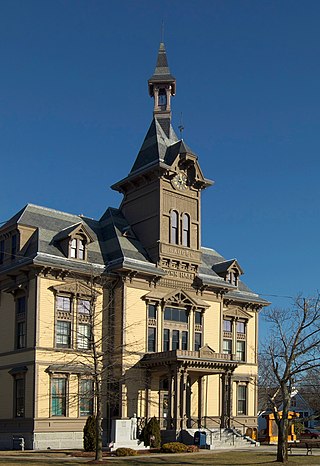
Saugus is a town in Essex County, Massachusetts, United States, in the Greater Boston area. The population was 28,619 at the 2020 census. Saugus is known as the site of the first integrated iron works in North America.
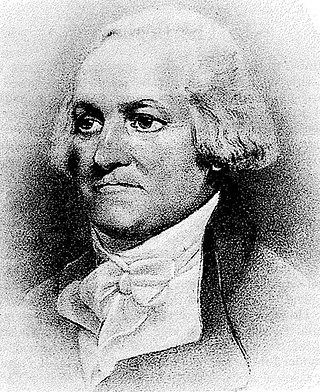
William Tudor was an American politician, military officer and lawyer from Boston. His eldest son William became a leading literary figure in Boston. Another son, Frederic, founded the Tudor Ice Company and became Boston's "Ice King", shipping ice to the tropics from many local sources of fresh water including Walden Pond, Fresh Pond, and Spy Pond in Arlington, Massachusetts.
The 1820–21 United States House of Representatives elections were held on various dates in various states between July 3, 1820, and August 10, 1821. Each state set its own date for its elections to the House of Representatives before the first session of the 17th United States Congress convened on December 3, 1821. They coincided with President James Monroe winning reelection unopposed.
The 1818–19 United States House of Representatives elections were held on various dates in various states between April 26, 1818 and August 12, 1819. Each state set its own date for its elections to the House of Representatives before the first session of the 16th United States Congress convened on December 6, 1819. They occurred during President James Monroe's first term. Also, newly admitted Alabama elected its first representatives in September 1819, increasing the size of the House to 186 seats.
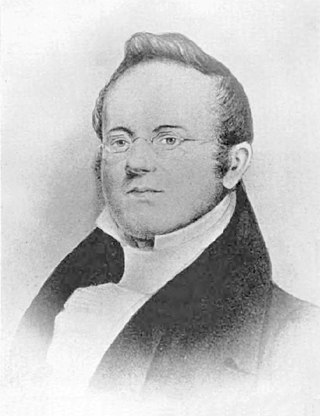
William Durkee Williamson was the second Governor of the U.S. state of Maine, and one of the first congressmen from Maine in the United States House of Representatives. He was a member of the Democratic-Republican Party. Williamson was also an early historian of Maine.
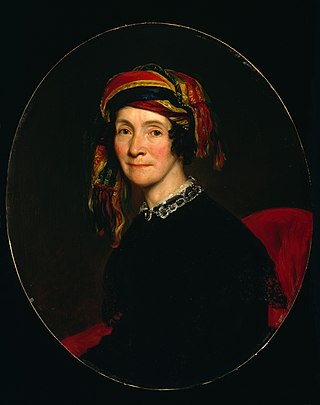
Jonathan Russell was a United States representative from Massachusetts and diplomat. He served the 11th congressional district from 1821 to 1823 and was the first chair of the House Committee on Foreign Affairs.
William A. Griswold was an American lawyer and politician in the U.S. state of Vermont. He served as the 22nd and 24th Speaker of the Vermont House of Representatives.
The following is a timeline of the history of Lynn, Massachusetts, USA.
Abijah Cheever was an American surgeon and politician from Saugus, Massachusetts.
William Jackson was an English-American pottery manufacturer and politician from Saugus, Massachusetts.
Benjamin Franklin Newhall (1802-1863) was an American businessman, abolitionist, politician, and writer.
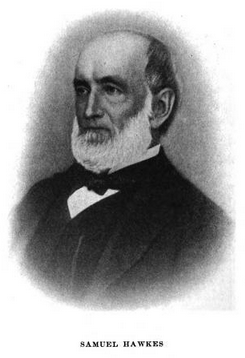
Samuel Hawkes was an American politician who represented Saugus in the Massachusetts House of Representatives as a young man. He spoke at Farmers' Institutes and represented the state at the National Farmer's Congress in Missouri. Hawkes belonged to family and local history organizations and served the Saugus community in several capacities.

Appleton's Pulpit is a historic landmark in Saugus, Massachusetts, United States. It is the location where Major Samuel Appleton is said to have made a speech denouncing the tyranny of Colonial Governor Sir Edmund Andros.
Jonathan Makepeace also known as Major Makepeace was an American businessman and political figure who manufactured snuff and held political office in Saugus, Massachusetts.
Joseph Jenckes Jr., also spelled Jencks and Jenks, was the founder of Pawtucket, Rhode Island, where he erected a forge in 1671.
The Massachusetts Constitutional Convention of 1820–1821 met in order to consider amendments to the Constitution of Massachusetts. It resulted in the adoption of the first nine amendments. Several other proposals were rejected.

Horace Hale Atherton was an American politician from Saugus, Massachusetts, who served in the Massachusetts House of Representatives after being elected to the 109th Massachusetts General Court in 1887. He represented the twentieth Essex district, and went on to also serve in the 110th Massachusetts General Court. He subsequently was a member of the Massachusetts Senate for two terms. He was a member of the Executive Council of 1898.
Robert Eames was an American miller and political figure who served as Saugus, Massachusetts first representative to the Massachusetts House of Representatives.
Harmon Hall was an American shoe manufacturer and politician who served in the Massachusetts General Court and on the Massachusetts Governor's Council.
Albert Henry Sweetser was an American snuff manufacturer and politician.
References
- 1 2 The New England magazine, Volume 2. New England Magazine Company. 1885. p. 143.
- ↑ Atherton, Horace H. (1916). History of Saugus, Massachusetts. Citizens Committee of the Saugus Board of Trade. p. 94.
- ↑ "Sketch of Saugus". The Bay State Monthly. John N. McClintock and Company. 1885. p. 149. Retrieved 25 April 2022.
- ↑ Lynn Historical Society (Lynn, Mass.) (1913). The Register of the Lynn Historical Society, Volumes 16-18.
- ↑ Duane Hamilton Hurd, ed. (1888). History of Essex County, Massachusetts: With Biographical Sketches of Many of Its Pioneers and Prominent Men, Volume 1. J. W. Lewis & Company. p. 394 . Retrieved April 2, 2013.